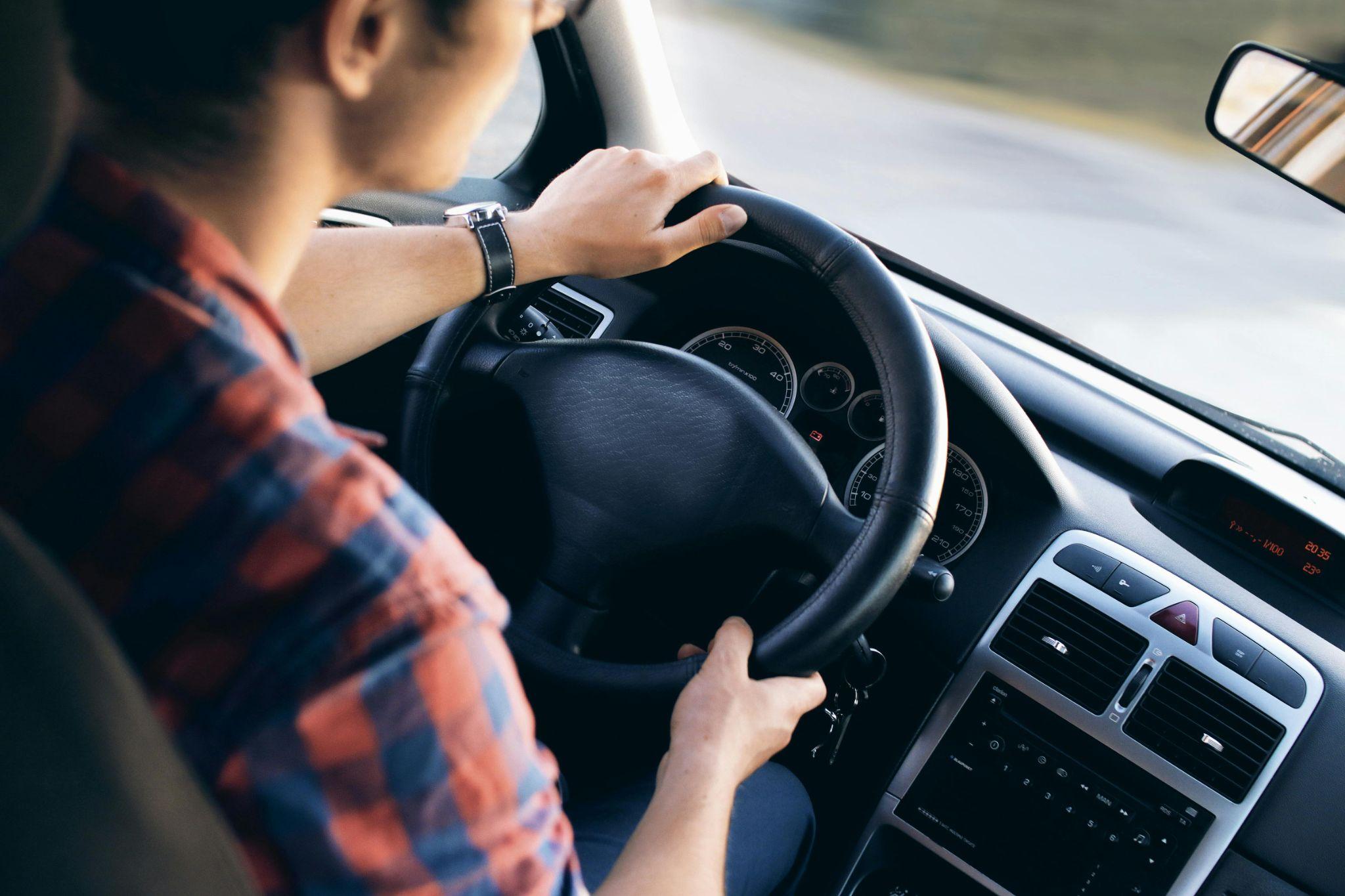Alcohol consumption significantly impairs an individual’s driving skills and judgment, posing a severe threat to road safety. This inquiry investigates the profound effects of alcohol on motor coordination, reaction times, and decision-making capabilities, illustrating the dangers of impaired driving.
Understanding Alcohol’s Impact on Coordination
In the realm of motor skills, alcohol significantly impairs coordination, a critical component for safe and efficient driving. Alcohol’s interaction with the central nervous system results in a decline in motor skills, leading to delayed reaction times and decreased precision in movements. This can result in balance issues, making it difficult for a driver to stay in their lane or navigate turns correctly.
Alcohol can also lead to cognitive impairment. This impact on the brain’s functioning can manifest itself in several ways, including reduced attention span, difficulty in processing information, and a decline in problem-solving abilities. Such cognitive impairments can further exacerbate the decline in motor skills, creating a dangerous cocktail of reduced physical control and mental acuity while driving.
Alcohol can affect hand-eye coordination, which is crucial for tasks such as steering and maintaining a safe distance from other vehicles. Impaired hand-eye coordination due to alcohol consumption can result in an inability to react appropriately to changing road conditions or unexpected obstacles. These combined factors underscore the significant risks involved in driving under the influence of alcohol.
Alcohol’s Effect on Perception and Reaction Time
Compromising a driver’s perceptual abilities, alcohol consumption significantly delays reaction time, leading to potentially hazardous driving conditions. Alcohol induces cognitive impairment, notably affecting the brain’s ability to process information and execute commands. The brain’s ability to discern distance, speed, and interpret signals is notably reduced, leading to miscalculations and errors.
Alcohol’s influence extends to delayed reactions – a critical factor in driving. Drivers need quick reflexes to respond to sudden changes or emergencies on the road. Alcohol consumption slows down the brain’s processing speed, consequently delaying reactions. This lag in response time can result in fatal accidents, particularly at high speeds or in dense traffic.
Alcohol impairs decision making, causing drivers to take unnecessary risks, misjudge situations, and display aggressive behavior on the road. It can also lead to reduced awareness, as drivers may not fully perceive or understand their surroundings. They may miss important traffic signs or fail to notice other vehicles and pedestrians.
Judgment Impairments Caused by Alcohol
The detrimental effects of alcohol extend beyond impaired perception and delayed reactions, significantly undermining a driver’s judgment and decision-making abilities. Alcohol’s influence disrupts the rational thought process, leading to an impairment in decision making. Consequently, drivers under the influence are more likely to make hasty, ill-considered choices, often resulting in disastrous outcomes.
One of the core challenges posed by alcohol consumption is the impairment of risk assessment capabilities. A driver’s ability to evaluate a situation and make sensible decisions is severely compromised. This can result in a dangerous overconfidence, where the driver underestimates the risks associated with their actions, leading to potentially hazardous situations on the road.
Alcohol can also induce impulsive behavior, with the driver more likely to engage in reckless actions, like speeding or ignoring traffic rules. The consequences of such behavior can be severe, ranging from traffic violations to serious accidents. Alcohol, by impairing critical thinking, inhibits the driver’s ability to foresee these consequences and act prudently.
Understanding the severe impact of alcohol on driving abilities underscores the importance of seeking professional assistance for those struggling with alcohol dependency. Alcohol rehab centers specialize in providing comprehensive care and support for individuals looking to overcome addiction. These facilities offer tailored treatment programs that address both the physical and psychological aspects of alcohol dependence, ensuring a holistic approach to recovery. Engaging with an alcohol rehab program can be a critical step towards regaining control over one’s life, including restoring driving skills and judgment impaired by alcohol use. With the support of alcohol rehab professionals, individuals can work towards a safer, healthier future free from the influence of alcohol
Real-Life Consequences of Drunk Driving
So, what are the real-life consequences of drunk driving, given the significant impairment of judgment and decision making caused by alcohol? The aftermath of drunk driving extends far beyond the immediate danger and potential damage caused to oneself and others on the road.
The legal consequences can be severe, often resulting in hefty fines, license suspension, mandatory alcohol education programs, and even imprisonment. These penalties are designed as safety measures to deter people from driving under the influence and to protect the public from the risk factors associated with drunk driving.
However, the impact of drunk driving isn’t limited to legal repercussions. It can also lead to loss of employment, increased insurance costs, and serious damage to personal relationships. Furthermore, the stigma and shame associated with drunk driving can lead to psychological trauma and social isolation.
Public awareness campaigns aim to educate individuals about these severe consequences, encouraging responsible drinking and promoting the use of alternative transportation options when alcohol has been consumed. Ultimately, the aim is to reduce the incidence of drunk driving and its devastating effects on individuals and society at large.
Frequently Asked Questions
How Does Alcohol Influence My Ability to Judge Distances While Driving?
Alcohol consumption significantly impairs your driving abilities, notably your depth perception. It reduces focus and alters spatial awareness, making it challenging to judge distances accurately. It compromises peripheral vision, which is crucial for detecting potential hazards. Therefore, alcohol can dramatically increase the risk of accidents due to these cognitive and visual impairments. It is strongly recommended to avoid driving under the influence of alcohol to ensure safety.
Can Alcohol Consumption Affect My Ability to Distinguish Between Different Colors or Lights on the Road?
Alcohol consumption can significantly impair visual acuity, including color perception and light sensitivity. This results in difficulty distinguishing between various colors or lights on the road, which can lead to dangerous driving conditions. The substance alters perception, making it challenging for the brain to process visual cues effectively. Thus, alcohol not only affects motor skills but also compromises critical visual functions necessary for safe driving.
Does Alcohol Have Any Long-Term Effects on My Driving Skills Even After I’ve Sobered Up?
Alcohol can have long-term effects on driving skills, even after sobriety. It can result in impaired memory, leading to difficulty in remembering routes or traffic rules. There can be cognitive decline, reducing the ability to process information and make quick decisions. Reduced concentration can affect the driver’s focus on the road, and habitual risk-taking caused by alcohol can lead to reckless driving behavior. These effects may persist even when not under the influence.
How Can Alcohol Impact My Ability to Respond to Sudden Changes or Emergencies on the Road?
Alcohol can significantly impact your ability to respond to sudden changes or emergencies on the road. It impairs reflexes, leading to slowed reaction time which is critical in emergency situations. It also causes inconsistent speed control, making it difficult to adapt quickly to changing road conditions. Furthermore, alcohol decreases coordination, resulting in poor vehicle control. Therefore, alcohol detrimentally affects your driving skills, posing a risk to safety.
Can Alcohol Consumption Alter My Understanding of Road Signs and Navigation While Driving?
Alcohol consumption can significantly impair your driving skills, particularly in terms of sign comprehension and navigation. It can cause directional confusion, alter your perception, and slow down information processing. This means you may struggle to understand road signs, misinterpret them or miss them entirely. Your ability to navigate safely is compromised. It’s crucial to avoid alcohol when planning to drive, to ensure your own safety and that of others.
Final Thoughts
Alcohol significantly impairs driving skills and judgment, compromising motor coordination, reaction time, and cognitive functions. The consequences of drunk driving are severe, posing risks to both the driver and society at large. Preventive measures, responsible drinking, and seeking help for substance abuse are critical for ensuring safer roads and healthier communities. This understanding underscores the imperative for continued research and policy development to mitigate the impact of alcohol-impaired driving.
At Altitude Recovery, we’re committed to lifting you from the depths of substance use challenges to the heights of recovery and resilience. Our expert team provides personalized, evidence-based treatment services designed to support your distinct path towards healing. Reach out to us for the understanding and compassionate care you deserve on your journey to wellness.






